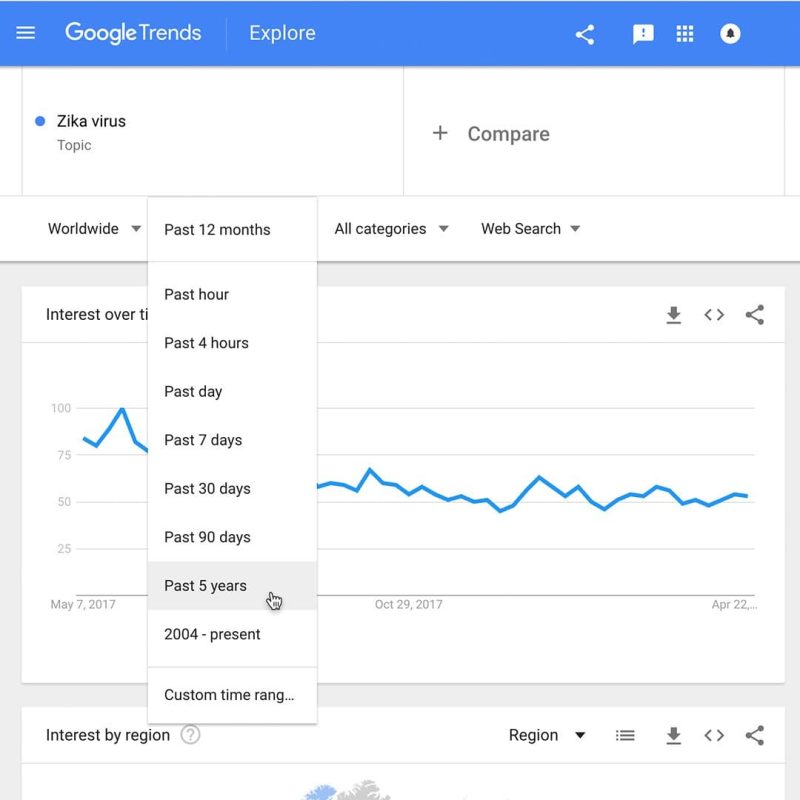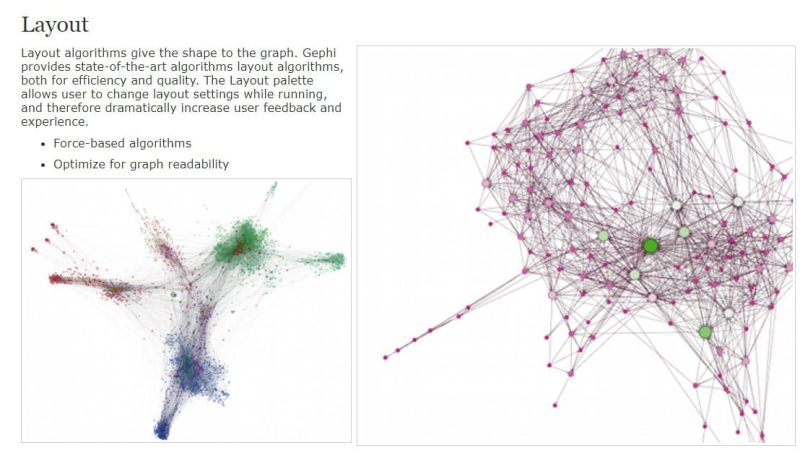ChatGTP for market research - table of contents
- What possibilities does ChatGPT offer for market research?
- ChatGPT for analyzing consumer trends and needs
- ChatGPT as a tool for market segmentation
- How to collaborate with ChatGPT for market research to identify new business opportunities?
- How can ChatGPT for market research improve targeting?
- What are the limitations of ChatGPT in the context of market research?
- If not ChatGPT, then what?
- Summary. Key benefits and challenges associated with the use of ChatGPT for market research
What possibilities does ChatGPT for market research?
ChatGPT for market research is a true treasure for every marketer. Although there are many specialized tools on the market that use artificial intelligence for market research, it’s worthwhile to start with ChatGPT to understand the diversity and scope of its capabilities. So, how does ChatGPT work for market research, and what functions can you use? Here are the five main possibilities:
- analyzing large text datasets – the system can, in seconds, analyze prepared sets of tweets, posts, comments, articles, and reports, seeking trends, behavior patterns, opinions, and customer preferences,
- creating surveys and research interviews – when given the appropriate question, ChatGPT will generate engaging research questions tailored to the company’s needs,
- assistance in customer segmentation – when you provide ChatGPT with a dataset of customers, it will help you group users into cohesive segments based on demographic features, lifestyles, purchasing habits, as well as other categories that you may not have noticed,
- generating accurate consumer personas – ChatGPT analyzes customer data and can assist in creating precise and vivid profiles of ideal customers based on that information,
- competitive analysis and identification of market gaps – when provided with necessary information about the company, ChatGPT will be highly helpful in searching for niches where competitors may not be present, suggesting opportunities for development.
It will be crucial to provide ChatGPT with access to company data. Using the free version of ChatGPT, you can only paste the data into the chat window, which is not a very convenient solution. Additionally, it allows for conveying a very limited amount of information. Attaching files to the query is only possible with a ChatGPT Plus subscription. Although it costs $20 per month, it’s challenging to find a better investment.
ChatGPT for analyzing consumer trends and needs
An additional advantage of the paid version of ChatGPT is the ability to access the Internet. One of the key benefits of ChatGPT is the ability to quickly and comprehensively analyze consumer trends. ChatGPT for market research, analyzes, among other things:
- articles and blog posts – both those stored in its “memory,” meaning those published in 2023, and those that can be found on the internet, allowing ChatGPT to review current blog entries, capturing interesting signals regarding market changes,
- industry reports – the system also processes data from analytical reports available under an open license to complement the picture of consumer trends.
- customer opinions – collected from social media and portals with reviews.
Based on this, it draws conclusions regarding:
- consumer trends – it can answer the question of which products, services, and lifestyles are gaining or losing popularity,
- customer needs – by analyzing customer reviews, ChatGPT for market research, extracts key needs, problems, and barriers that are worth addressing with an offer.
ChatGPT for market research is invaluable support in identifying market opportunities and adapting offerings to changing customer preferences. It can also assist in forecasting future behaviors. However, you need to be careful. If ChatGPT for market research does not have sufficiently detailed data, it may hallucinate, providing persuasive but incorrect information.
ChatGPT as a tool for market segmentation
Market segmentation is the foundation of effective targeting in marketing activities. ChatGPT can prove to be extremely helpful in identifying and analyzing customer segments.
This system is capable of processing both demographic data (age, gender, education, place of residence) and information about customer behaviors, attitudes, and lifestyles. Based on this, target groups with similar characteristics and requirements are created.
ChatGPT proves highly effective in market research by:
- sorting the customer base into coherent segments using available data,
- identifying shared characteristics among customers within the designated segments,
- assigning unique names to segments that reflect their features,
- forecasting the size and directions of segment development in the future.
This precise segmentation allows for more targeted offers and communications.

Source: DALL·E 3, prompt: Marta M. Kania (https://www.linkedin.com/in/martamatyldakania/)
How to collaborate with ChatGPT for market research to identify new business opportunities?
One of the more intriguing skills of ChatGPT is market analysis and the identification of untapped niches where growth potential lies dormant. How can this capability be activated?
First and foremost, it’s valuable to “feed” the system with as broad knowledge as possible about your industry, competitors, and customers – the more data, the better the results. To harness the potential of ChatGPT for market research in this area, it’s advisable to:
- ask ChatGPT for an analysis of competitor actions and identification of areas where their activity is minimal,
- directly inquire about identifying market niches and customer segments whose needs are currently unmet,
- pose a question about innovative product formats or customer service methods that competitors are not yet using.
Based on this, artificial intelligence should generate specific recommendations regarding development directions, business opportunities, and potential market “white spots.” It is advisable to further explore these insights through traditional consumer research.
How can ChatGPT for market research improve targeting?
Reaching the right audience is the foundation of effective online advertising. ChatGPT offers interesting possibilities for improving the targeting of online campaigns. It can, among other things, accurately:
- analyze target groups based on demographic characteristics, interests, or purchase intentions,
- assist in identifying the most promising audience segments,
- generate profiles of representative users within specified target groups,
- suggest the most effective advertising channels and formats for a given segment, and
- evaluate the alignment of specific ads with the preferences of their audience, proposing potential changes.
Thanks to this, you will be able to maximize the chances of delivering advertising messages to interested audiences. Moreover, ChatGPT allows you to quickly verify these assumptions by generating samples of targeted ads along with recommendations on what to improve in their content, graphics, and channel selection. Such preliminary optimization of the message before the campaign significantly enhances its effectiveness.
What are the limitations of ChatGPT in the context of market research?
While the advantages of ChatGPT for market research are undeniable, it’s essential to be aware of certain limitations of this tool:
- it primarily relies on analyzing existing data, which may distort the actual market picture,
- the quality of ChatGPT’s responses depends on the quantity and reliability of the data it is “fed”; the more real consumer insights, the better the results,
- some nuances in customer behavior may be challenging to interpret solely based on dry data; human intuition and direct contact with the consumer come in handy in such cases.
That’s why it’s crucial to work with ChatGPT for market research – combining ChatGPT with data obtained from traditional consumer research methods, primary market research, and personal observations to achieve the most comprehensive understanding of the situation.
If not ChatGPT, then what?
If marketers do not want or can’t use ChatGPT for market research due to regulatory reasons, there are alternative artificial intelligence-based tools:
- Hotjar – it is a suite of tools for analyzing user behaviors. Features such as website visit recordings, heatmaps, or surveys allow tracking interactions with the site. This data enables the identification of bottlenecks, issues with user experience, and areas requiring optimization,
- Google Trends – Google’s free tool that analyzes the interest and popularity of keywords, phrases, topics over time and location. It’s a great resource for observing consumer trends, seasonality of queries, phases of growth or decline in demand for certain products,
- Gephi – an open-source platform known as the “Photoshop of data,” it is used for the visualization and analysis of social networks, connections between people, and brands. The tool allows you to identify influential nodes (individuals), communication channels, and group divisions. This valuable knowledge is utilized, for example, in social media strategies.

Source: GoogleTrends (https://trends.google.com/trends/)

Source: Gephi (https://gephi.org/features/)
Summary. Key benefits and challenges associated with the use of ChatGPT for market research
ChatGPT for market research is a robust analytical tool with great potential in the realm of marketing studies. The key advantages of using ChatGPT include its ability to perform comprehensive and multidimensional analyses of datasets, revealing unexpected insights. Additionally, it provides valuable support in identifying market opportunities and threats.
At the same time, it’s worth remembering about certain limitations when using ChatGTP and other AI tools, such as the risk of oversimplifications, incorrect interpretations of data, or a lack of direct contact with the market. However, these are risks that also arise in human data analysis.
Wise integration of information from ChatGPT with the results of your own field research is the key to maximizing the value that artificial intelligence can bring to strategic business decision-making. This presents a tremendous opportunity for contemporary market research professionals.

If you like our content, join our busy bees community on Facebook, Twitter, LinkedIn, Instagram, YouTube, Pinterest, TikTok.
Author: Robert Whitney
JavaScript expert and instructor who coaches IT departments. His main goal is to up-level team productivity by teaching others how to effectively cooperate while coding.
AI in business:
- Threats and opportunities of AI in business (part 1)
- Threats and opportunities of AI in business (part 2)
- AI applications in business - overview
- AI-assisted text chatbots
- Business NLP today and tomorrow
- The role of AI in business decision-making
- Scheduling social media posts. How can AI help?
- Automated social media posts
- New services and products operating with AI
- What are the weaknesses of my business idea? A brainstorming session with ChatGPT
- Using ChatGPT in business
- Synthetic actors. Top 3 AI video generators
- 3 useful AI graphic design tools. Generative AI in business
- 3 awesome AI writers you must try out today
- Exploring the power of AI in music creation
- Navigating new business opportunities with ChatGPT-4
- AI tools for the manager
- 6 awesome ChatGTP plugins that will make your life easier
- 3 grafików AI. Generatywna sztuczna inteligencja dla biznesu
- What is the future of AI according to McKinsey Global Institute?
- Artificial intelligence in business - Introduction
- What is NLP, or natural language processing in business
- Automatic document processing
- Google Translate vs DeepL. 5 applications of machine translation for business
- The operation and business applications of voicebots
- Virtual assistant technology, or how to talk to AI?
- What is Business Intelligence?
- Will artificial intelligence replace business analysts?
- How can artificial intelligence help with BPM?
- AI and social media – what do they say about us?
- Artificial intelligence in content management
- Creative AI of today and tomorrow
- Multimodal AI and its applications in business
- New interactions. How is AI changing the way we operate devices?
- RPA and APIs in a digital company
- The future job market and upcoming professions
- AI in EdTech. 3 examples of companies that used the potential of artificial intelligence
- Artificial intelligence and the environment. 3 AI solutions to help you build a sustainable business
- AI content detectors. Are they worth it?
- ChatGPT vs Bard vs Bing. Which AI chatbot is leading the race?
- Is chatbot AI a competitor to Google search?
- Effective ChatGPT Prompts for HR and Recruitment
- Prompt engineering. What does a prompt engineer do?
- AI Mockup generator. Top 4 tools
- AI and what else? Top technology trends for business in 2024
- AI and business ethics. Why you should invest in ethical solutions
- Meta AI. What should you know about Facebook and Instagram's AI-supported features?
- AI regulation. What do you need to know as an entrepreneur?
- 5 new uses of AI in business
- AI products and projects - how are they different from others?
- AI-assisted process automation. Where to start?
- How do you match an AI solution to a business problem?
- AI as an expert on your team
- AI team vs. division of roles
- How to choose a career field in AI?
- Is it always worth it to add artificial intelligence to the product development process?
- AI in HR: How recruitment automation affects HR and team development
- 6 most interesting AI tools in 2023
- 6 biggest business mishaps caused by AI
- What is the company's AI maturity analysis?
- AI for B2B personalization
- ChatGPT use cases. 18 examples of how to improve your business with ChatGPT in 2024
- Microlearning. A quick way to get new skills
- The most interesting AI implementations in companies in 2024
- What do artificial intelligence specialists do?
- What challenges does the AI project bring?
- Top 8 AI tools for business in 2024
- AI in CRM. What does AI change in CRM tools?
- The UE AI Act. How does Europe regulate the use of artificial intelligence
- Sora. How will realistic videos from OpenAI change business?
- Top 7 AI website builders
- No-code tools and AI innovations
- How much does using AI increase the productivity of your team?
- How to use ChatGTP for market research?
- How to broaden the reach of your AI marketing campaign?
- "We are all developers". How can citizen developers help your company?
- AI in transportation and logistics
- What business pain points can AI fix?
- Artificial intelligence in the media
- AI in banking and finance. Stripe, Monzo, and Grab
- AI in the travel industry
- How AI is fostering the birth of new technologies
- The revolution of AI in social media
- AI in e-commerce. Overview of global leaders
- Top 4 AI image creation tools
- Top 5 AI tools for data analysis
- AI strategy in your company - how to build it?
- Best AI courses – 6 awesome recommendations
- Optimizing social media listening with AI tools
- IoT + AI, or how to reduce energy costs in a company
- AI in logistics. 5 best tools
- GPT Store – an overview of the most interesting GPTs for business
- LLM, GPT, RAG... What do AI acronyms mean?
- AI robots – the future or present of business?
- What is the cost of implementing AI in a company?
- How can AI help in a freelancer’s career?
- Automating work and increasing productivity. A guide to AI for freelancers
- AI for startups – best tools
- Building a website with AI
- OpenAI, Midjourney, Anthropic, Hugging Face. Who is who in the world of AI?
- Eleven Labs and what else? The most promising AI startups
- Synthetic data and its importance for the development of your business
- Top AI search engines. Where to look for AI tools?
- Video AI. The latest AI video generators
- AI for managers. How AI can make your job easier
- What’s new in Google Gemini? Everything you need to know
- AI in Poland. Companies, meetings, and conferences
- AI calendar. How to optimize your time in a company?
- AI and the future of work. How to prepare your business for change?
- AI voice cloning for business. How to create personalized voice messages with AI?
- Fact-checking and AI hallucinations
- AI in recruitment – developing recruitment materials step-by-step
- Midjourney v6. Innovations in AI image generation
- AI in SMEs. How can SMEs compete with giants using AI?
- How is AI changing influencer marketing?
- Is AI really a threat to developers? Devin and Microsoft AutoDev
- AI chatbots for e-commerce. Case studies
- Best AI chatbots for ecommerce. Platforms
- How to stay on top of what's going on in the AI world?
- Taming AI. How to take the first steps to apply AI in your business?
- Perplexity, Bing Copilot, or You.com? Comparing AI search engines
- ReALM. A groundbreaking language model from Apple?
- AI experts in Poland
- Google Genie — a generative AI model that creates fully interactive worlds from images
- Automation or augmentation? Two approaches to AI in a company
- LLMOps, or how to effectively manage language models in an organization
- AI video generation. New horizons in video content production for businesses
- Best AI transcription tools. How to transform long recordings into concise summaries?
- Sentiment analysis with AI. How does it help drive change in business?
- The role of AI in content moderation


















